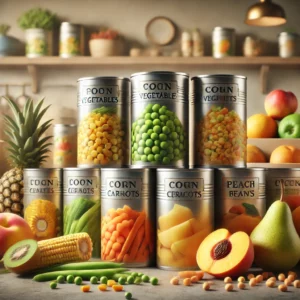Zsolt Feldman: there are good examples of partnership and working integration between the Hungarian agricultural raw material production and the processing industry
It would be a sign of the future if the relationship between Hungarian agricultural producers and food processors was as much as possible based on a partnership based on cooperation, such as the one established between Nyíregyház EKO Konzervipari Kft. and its producers, said the State Secretary of the Ministry of Agriculture (AM) responsible for agriculture and rural development on Thursday Nyíregyháza.

(Illustration: AI)
Zsolt Feldman recalled at the anniversary celebration of EKO Konzervipari Kft. that the performance of the Hungarian food industry decreased by twenty percent after joining the EU in 2004 until 2010, and then increased by more than twenty-five percent after 2010, thanks to the fact that after the system change and the EU accession businesses that remained afloat began to strengthen during this period. In order for agricultural raw material production to be stable and safe, predictable and stable partners are needed, which is why this industry is based on partnership and integration – said the state secretary, noting that EKO Konzervipari Kft., which is celebrating its 60th anniversary, has always maintained this partnership relationship, which is why it was able to remain a strong, reliable company even after the change of ownership. This is the most important message in Hungarian agriculture, said Zsolt Feldman, mentioning that the Hungarian food industry exports 43-45 percent of its processed products.
According to the State Secretary, positive customer feedback proves that Hungarian agricultural products are competitive in terms of price and quality
And it shows the sector’s need for development that HUF 477 billion in support requests were received in two weeks for the most recent call for tenders for the food industry. Ferenc Apáti, the president of the FruitVeB Hungarian Fruit and Vegetable Association and Product Council, said that after the difficulties of the last four or five years, it will not be easy for domestic fruit and vegetable cultivation, that the reorganization of the markets and the effects of climate change, which are European and also “pulls up” prices on a global level. However, a community organized around such a company will stand its ground even in unfavorable economic conditions, he stated. Hungary is the largest in Europe in the production of EKO Kft.’s defining products, for example sweet corn, among the top five in green peas, and among the three largest in the case of sour cherries, so there is a weight behind the sector and the products that we can build on – said Ferenc Apáti .
More than a hundred producers contracted with the Hungarian family-owned EKO Konzervipari Kft., which has been producing canning products since 1964, deliver the raw material to the cannery in Nyíregyháza from an agricultural area of about 3,200 hectares – read the company’s website. According to public data, EKO Kft. achieved net sales of HUF 13.3 billion between July 2022 and June 2023, and HUF 11.1 billion in the same period of 2021-2022, compared to a loss of HUF 230 million two years ago, while by June 30, 2023, HUF 180 realized a profit after tax of HUF million.
MTI
Related news
Agricultural vocational training also places great emphasis on irrigation development
🎧 Hallgasd a cikket: Lejátszás Szünet Folytatás Leállítás Nyelv: Auto…
Read more >Related news
Nestlé to sell remaining ice-cream assets but commits to Froneri venture
🎧 Hallgasd a cikket: Lejátszás Szünet Folytatás Leállítás Nyelv: Auto…
Read more >40 secure jobs, sustainable solutions – new BURGER KING® in Csepel
🎧 Hallgasd a cikket: Lejátszás Szünet Folytatás Leállítás Nyelv: Auto…
Read more >







